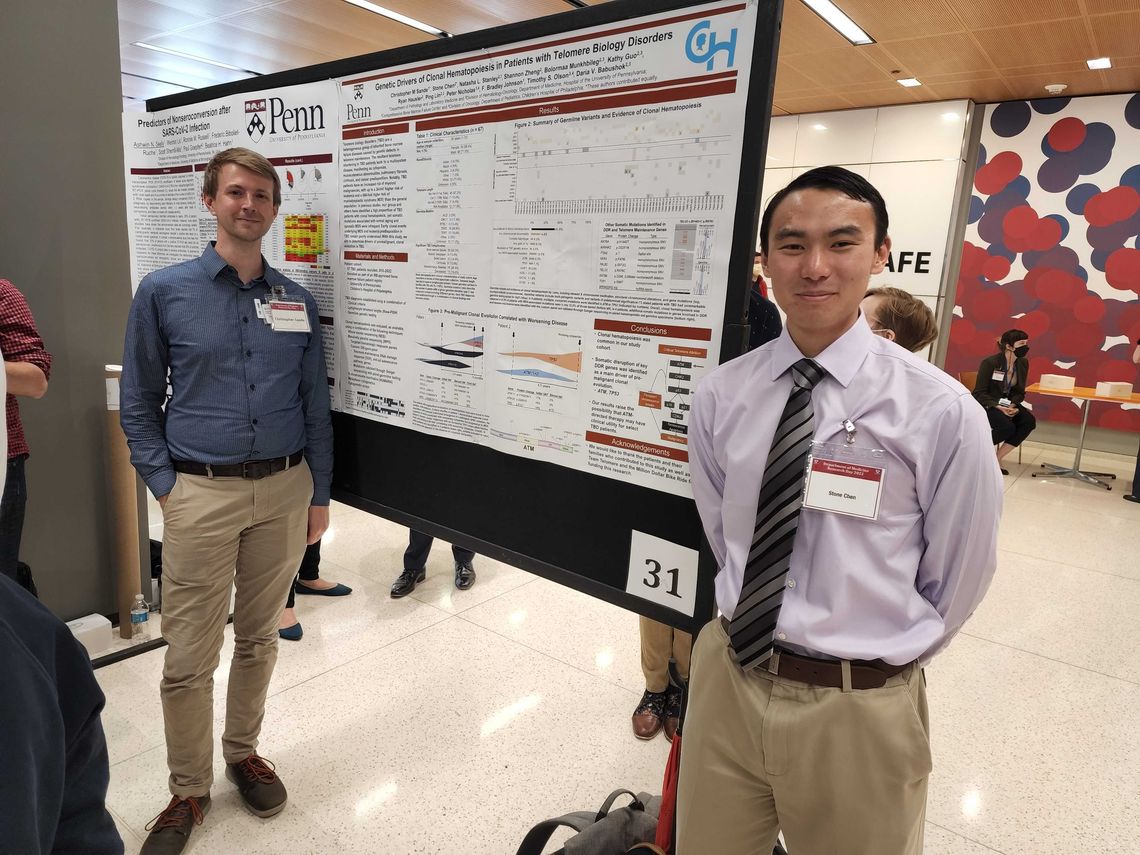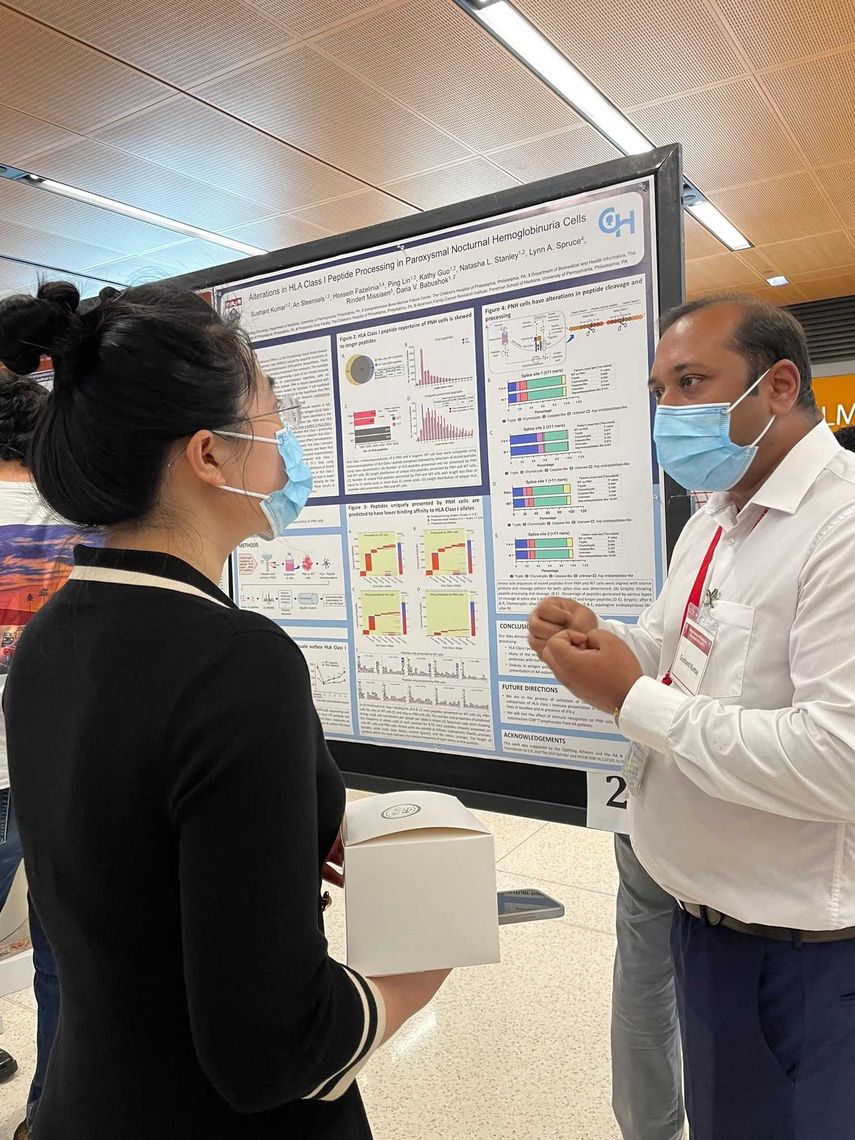Babushok Lab Research
The long-term goal of the Babushok Laboratory to improve the outcomes of patients with bone marrow failure disorders through bench-to-bedside research aimed at elucidating mechanisms of hematopoietic failure and transforming this knowledge into rational therapies. In our previous studies, we have established an analytical platform that sensitively and reliably identifies somatic changes in hematopoietic cells of patients with bone marrow failure using comparative whole exome sequencing (WES), single nucleotide polymorphism array (SNP-A) analysis, and deep targeted sequencing of the Major Histocompatibility Complex (MHC) region, and have used this pipeline to define the landscape of clonal hematopoiesis in acquired aplastic anemia (AA) and other bone marrow failure disorders. Our results led to novel insights into clonal evolution in patients with AA, and specifically, in the role of Human Leukocyte Antigen (HLA) Class I autoimmunity in the pathogenesis of AA. Based on our studies as well as studies of others, we hypothesize that bone marrow aplasia in AA is caused by autoreactive T cells that are directed against one or a small number of shared autoantigens presented by HLA class I alleles, and that this cytotoxic T cell attack, as well as its associated proinflammatory marrow environment, create a selective pressure that causes outgrowth of cells bearing adaptive somatic mutations. These mutations, in turn, affect the patients’ long-term outcomes, and some of them predispose to the development of MDS.
Our current studies aim to answer the following questions:
- What causes the emergence of clonal hematopoiesis in premalignant conditions, such as aging, inherited bone marrow failure syndromes, and immune-mediated bone marrow failure
- How can we use our knowledge of mechanisms of clonal selection to shift the balance in favor of healthy hematopoiesis?
- What is the pathogenic mechanism of acquired immune-mediated bone marrow failure (e.g. AA)?
- How can we transform the improved understanding of the immune pathogenesis of AA into novel prevention strategies, improved diagnostic tests, and rational therapies?
- How do the mechanism of autoimmunity and immune evasion in AA inform our understanding of related phenomena, including immune surveillance and immune evasion in cancer and mechanisms of resistance to immunotherapies?




